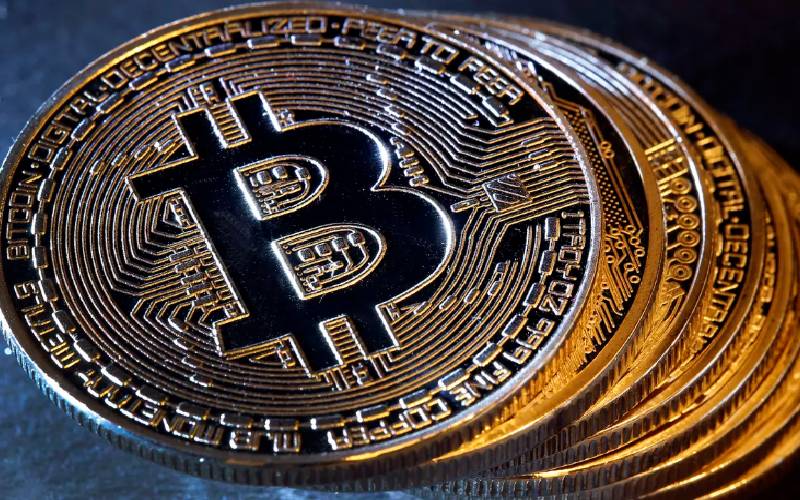
Had he pulled off the elusive Pan-African dream, Isaac Mwenda Muthui would likely have caused Jomo Kenyatta, Nelson Mandela and Muhammad Gaddafi to turn in their graves.
Africa’s founding fathers, including Robert Mugabe, spent most of their earlier lives in office trying to break down the ‘artificial’ borders created by colonialists in the divide and rule tactic they employed to share out the continent.
Mr Muthui’s dream was to get Africa to adopt a single digital currency, Nurucoin, which his company was developing, for all cross-border transactions.
Payments would be done from the comfort of one’s mobile phone through a digital wallet.
Further, he said, the currency would grow in value so much that what one had in their wallet could potentially never get depleted despite being spent.
It is this fairytale promise that got people like Frederick Yego, a tea packer at Kimugu Tea Factory in Kericho, onboard.
Two years ago, people claiming to be agents working for ChurchBlaze Group visited his place of work, which is seven kilometres from Kericho town.
Investment opportunities
Their message was direct.
“If you invest well with us, you can be sure the returns will change your lives in future,” Mr Yego recalled them saying.
A follow-up meeting was convened a week later in town, which brought together about 300 residents, including boda boda riders.
A man who said he had retired from the military and taken up the Bible told them about the investment opportunities that ChurchBlaze had identified, including Nurucoin.
“I am not sure if anyone understood, but just as students are told to go to school to secure their future, we followed keenly,” Yego told The Standard in a phone interview.
There wasn’t much time left to invest before the window to do so closed, Yego and his fellow residents were told. The group asked for a grace period to organise their finances.
They were also shown videos of the ‘boss’, who happened to be Muthui, on WhatsApp.
From his gross monthly salary of Sh16,000, Yego figured he could raise enough cash to invest during the grace period.
“I invested Sh10,000 in ChurchBlaze Group, and bought 1,000 coins with another Sh10,000.”
An agent was stationed at a stall in the tea capital, and would provide receipts as proof of payment received. And then everything went quiet.
Every time he contacted the agent, the response was almost always, “Things are OK. Just be patient”.
Yego remembers that the word “Bitcoin” was used frequently in the informative sessions with the coaches, including with the military-officer-turned-pastor.
Back in 2017, the Bitcoin cryptocurrency had become a global sensation, having risen in value from about Sh98,000 per unit on January 1 to Sh450,000 by October.
Cryptocurrencies are essentially electronic cash systems but without a third party, such as central banks. If we were all to buy into a specific cryptocurrency and agree to use it as a medium of exchange, there would be no need of money as we know it today.
Yego still does not understand what was driving the Bitcoin price hike, but he did not doubt it was happening.
Yego’s story has played out tens of thousands times across the country among equally optimistic investors who bought into a dream that never was, at least according to former employees’ accounts.
In Muthui’s vision, the elusive continental market for goods and services was finally possible. It would be built on the runaway successes of platforms like Kayak, eBay, Alibaba and Uber, all brought together under the ChurchBlaze Group.
There was also Somamate, envisaged as an integrated education management platform, where teachers and parents could closely monitor learners.
Optimistic investors
ChurchBlaze was also developing Q-Kut, a queue management system that could be bought by banks, hospitals, schools and public transport providers to manage queues.
Kayak’s equivalent in the ChurchBlaze stable is Homestay Safari, which as the name suggests, would help travellers find the best travel and holiday packages.
Nunua254 would mirror Alibaba, while BlazeBay was to be the African equivalent of eBay.
All these businesses were to be complemented by a digital currency, Nurucoin, gradually edging out Africa’s respective currencies.
“It is time for Africans to come up with our own solutions,” Muthui told this writer in an interview last year.
However, soon after the interview, which took place around June, Muthui sent home most of his staff, including the ones who were managing the company’s social media pages, which were the only interaction with investors.
A source indicated that while there was a team hired to develop the blockchain database, all they did was build websites for the various products, including Nurucoin.
“We never had any blockchain database; it was just an ordinary website to post any information as directed,” they said.
It appears from interviews with several people the IT guys were just punching numbers on the Nurucoin website to allude to some form of value appreciation, mirroring the movement of Bitcoin. At one time, the quoted price was $1.05 (Sh107 at current exchange rates) a unit. Efforts to reach Muthui on phone were futile.
 The Standard Group Plc is a multi-media organization with investments in media
platforms spanning newspaper print operations, television, radio broadcasting,
digital and online services. The Standard Group is recognized as a leading
multi-media house in Kenya with a key influence in matters of national and
international interest.
The Standard Group Plc is a multi-media organization with investments in media
platforms spanning newspaper print operations, television, radio broadcasting,
digital and online services. The Standard Group is recognized as a leading
multi-media house in Kenya with a key influence in matters of national and
international interest.
 The Standard Group Plc is a multi-media organization with investments in media
platforms spanning newspaper print operations, television, radio broadcasting,
digital and online services. The Standard Group is recognized as a leading
multi-media house in Kenya with a key influence in matters of national and
international interest.
The Standard Group Plc is a multi-media organization with investments in media
platforms spanning newspaper print operations, television, radio broadcasting,
digital and online services. The Standard Group is recognized as a leading
multi-media house in Kenya with a key influence in matters of national and
international interest.









